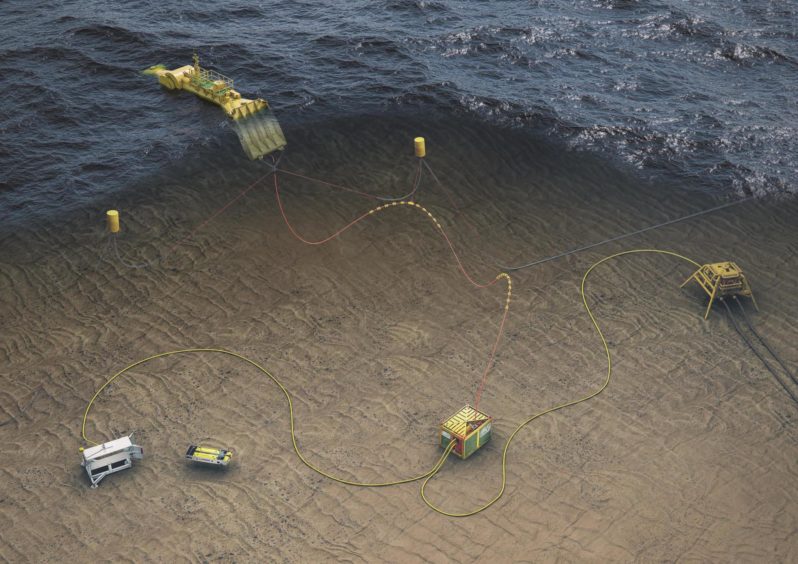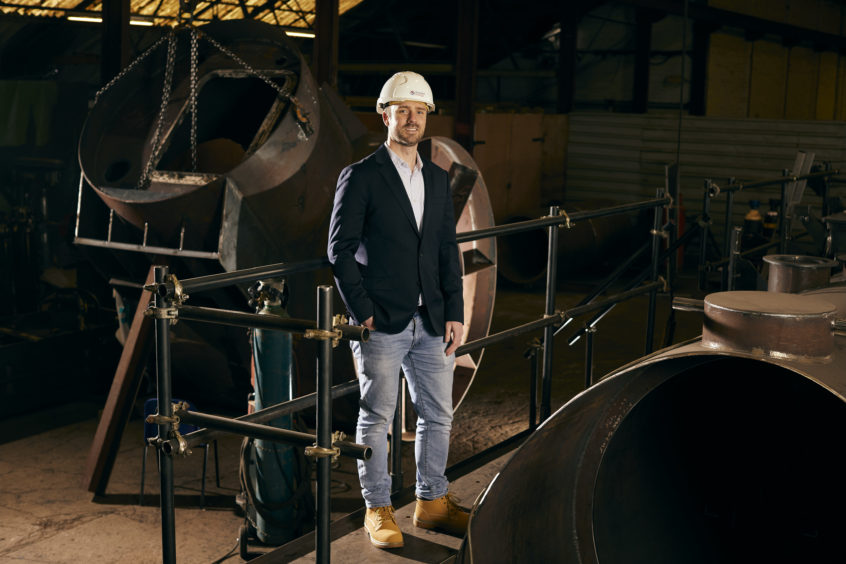
Renewable energy could soon be used to run subsea oil and gas equipment as part of efforts to slash operational emissions.
Scottish wave power experts Mocean Energy and energy storage developers EC-OG have joined forces with Chrysaor, Modus, OGTC and Baker Hughes to fund the demonstration of a wave powered system for use in offshore operations.
The programme will demonstrate how green energy, coupled with underwater energy storage, can be used to cost-effectively lower the carbon footprint of providing power to subsea oil and gas production equipment and autonomous underwater vehicles.
Grant funding provided by OGTC has been matched by financial and in-kind contributions from the other project partners.
The system will be tested onshore at EC-OG’s facility in Aberdeen in July and August before it is tried offshore later in the year.
A previous study, carried out by the project partners in 2020 and part funded by OGTC, set out the environmental benefits of the design concept that will be used for the upcoming demonstration programme.
There is an increasing drive amongst oil and gas firms to adopt low-carbon solutions in order to cut operational emissions.
Mocean, which has bases in Aberdeen and Edinburgh, raised £850,000 from a number of private investors last year to fund its growth plans.
Cameron McNatt, the firm’s managing director, said: “The decarbonisation of oil and gas operations is essential for the energy transition.
“Our technology uses renewable energy from waves to deliver low carbon power for subsea equipment, including tiebacks and future fleets of autonomous underwater vehicles (AUV’s).
“In this programme, we will demonstrate – in onshore conditions – how our wave device will deliver power and communication to subsea equipment.”
It’s claimed such renewable systems could be used in a number of subsea applications, including remediation of faulty umbilical cables in existing developments and as fast track solutions for single well tiebacks.
Paul Slorach, business development director at EC-OG, said: “EC-OG’s Halo smart subsea battery technology has been specifically developed for managing the intermittency of renewable power generation to reliably integrate renewable energy systems to high value subsea assets.
“Clean energy systems are an increasingly important building block of offshore developments and we’re aiming to be at the forefront of the delivery of renewable energy to the underwater environment.”
Nigel Ward, managing director at Modus added: “This project will demonstrate the capability to provide temporary or semi-permanent modular series residency for hybrid autonomous underwater vehicles (HAUV), recharged subsea and controlled from shore using ‘over-the-horizon’ technology.
“This innovative and flexible approach to survey and inspection will reduce the numbers of personnel required offshore, providing significant benefits and cost savings, without compromising quality.”
John Kerr, subsea production systems and technology director for Baker Hughes, said: “Many subsea oilfield production systems will transition to all electric operations in the not too distant future, which will increase operational performance while simultaneously lowering the carbon footprint of the solution.
“We are excited to be part of this project as we will be able to simulate the ability of the system to power and communicate with the equivalent of a four well Baker Hughes all electric subsea production system.”
Recommended for you


 © Peter Dibdin/ Mocean Energy
© Peter Dibdin/ Mocean Energy